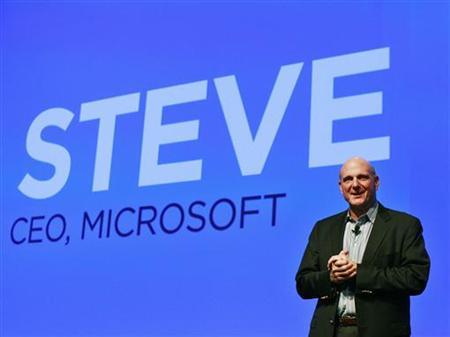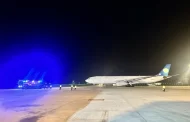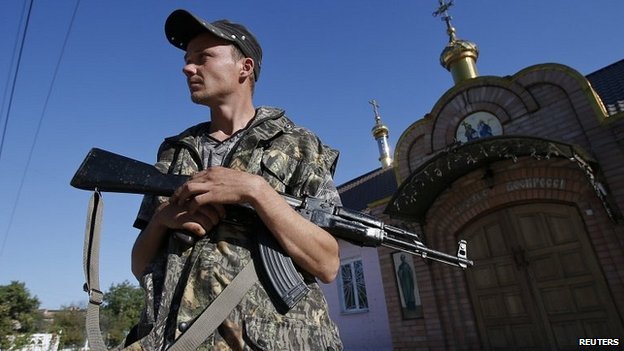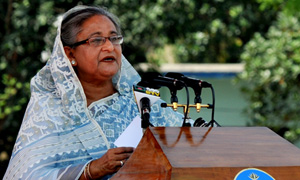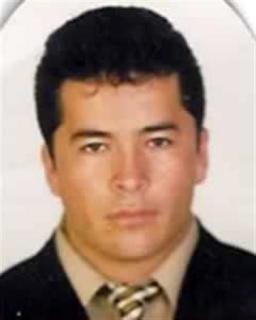 Mexico says it has killed Heriberto Lazcano, the leader of the brutal Zetas drug gang and the most powerful kingpin to fall in a six-year battle against cartels, but in a surreal twist his body was snatched from a funeral home by armed men.
Mexico says it has killed Heriberto Lazcano, the leader of the brutal Zetas drug gang and the most powerful kingpin to fall in a six-year battle against cartels, but in a surreal twist his body was snatched from a funeral home by armed men.
Mexico’s navy said on Tuesday fingerprint tests had confirmed Lazcano was killed in a firefight in a small village in the northern state of Coahuila on Sunday afternoon.
But it appeared the military may have been unaware it had killed Lazcano until his corpse was stolen from the funeral home in the northern town of Sabinas before dawn on Monday.
Lazcano, alias “The Executioner,” had a $5 million U.S. bounty on his head and was the highest profile drug lord to be killed or captured in a military offensive launched when President Felipe Calderon took office in late 2006.
Just hours after he was killed, in a scene straight out of a movie, an armed group snatched Lazcano’s body and that of another Zetas member from the funeral parlor.
“A masked, armed group overpowered the personnel, took the bodies and forced the owner of the funeral home to drive the get-away vehicle,” Homero Ramos, Coahuila’s state prosecutor, told a news conference on Tuesday.
It was not immediately clear how the bodies were so easily snatched, and local security officials declined to say whether the funeral home was being guarded. A spokeswoman for the home declined comment on how Lazcano’s corpse was taken.
If Lazcano’s men took the body, it would not be the first time something of the kind has happened in Mexico’s drug war. In 2010, police killed Nazario Moreno, leader of La Familia cartel, in a firefight in western Mexico, but gunmen carried off his body into the hills before it could be recovered.
While the government and rival gangs may welcome Lazcano’s death, the failure to guard his body is an embarrassment, and a battle for control of the Zetas could become a big headache for President-elect Enrique Pena Nieto, who takes office on December 1.
Calderon hailed the navy in a speech on Tuesday saying that “all the available evidence clearly indicated” Lazcano had been gunned down on Sunday. But the president did not say that he knew for sure Lazcano was dead.
U.S. authorities were also unable to confirm the death of Lazcano, who was identified in Mexico from the prints of three fingers on his right hand, the navy said.
However, Interior Minister Alejandro Poire said on Tuesday evening there was “no doubt” that the dead man was Lazcano.
Photographs published by the navy showed the body of a man in a dark shirt stained with mud lying on a table, his face similar to mugshots of Lazcano, a former Mexican special forces soldier who defected to join the Gulf Cartel in the 1990s.
The navy has played a major role in the crackdown on the cartels, claiming three of the most wanted bosses in the past month alone. Some experts say it is more trusted by U.S. intelligence services than the army and the federal police.
Coahuila prosecutor Ramos said Lazcano and the other man were confronted on Sunday by Marines who had received a tip-off about two men in a vehicle acting suspiciously.
In the ensuing fight by a welcome sign to the arid village of Progreso about 80 miles from the U.S. border, the men attacked the Marines with grenades. A grenade launcher and a host of other weapons were later found inside the vehicle.
Some Mexican media said Lazcano had been watching a baseball match on an open field nearby before the firefight began.
Security experts said the decapitation of the Zetas would likely spark a scramble for power and an increase in violence in the cartel’s northern strongholds.
ATROCITIES
Lazcano and other army deserters built up the Zetas as enforcers for the Gulf Cartel but broke away in 2010 to fight a bloody turf war with their former bosses and other drug gangs.
The Zetas are considered one of the two most powerful drug gangs in Mexico and have carried out some of the worst atrocities in a drug war that has killed about 60,000 people during Calderon’s term.
Lazcano, also known as “Z-3,” was one of Mexico’s most-wanted men. Only Joaquin “Shorty” Guzman, boss of the Sinaloa Cartel, would represent a bigger prize to the government.
Under Lazcano’s leadership, the Zetas grew into a gang of more than 10,000 gunmen with operations stretching from the Rio Grande to deep into Central America.
Lazcano’s Zetas have rapidly displaced Mexico’s older cartels in many areas, giving them a dominant position in the multi-billion-dollar cross-border drug trade, as well as in extortion, kidnapping and other criminal businesses.
But the Zetas have lately appeared to be splitting, with a longstanding rivalry between Lazcano and his deputy Miguel Trevino, alias “Z-40,” exploding into violence.
‘DEATH SPIRAL’
Alejandro Hope, a security analyst who formerly worked in the government intelligence agency, said most of the gang’s leadership had been either captured or killed in the past year.
“They are in something of a death spiral. Each capture has led to snitching and more snitching,” he said. “A lot of people in the organization will find it better to just slip out before they are turned in.”
Since 2009, government troops have caught or killed more than 20 major drug lords. Senior Zetas boss Ivan Velazquez, also known as “El Taliban” or “Z-50,” and Gulf Cartel head Jorge Costilla, alias “El Coss,” were both captured last month.
Gonzalo Villanueva, a hotel worker in Mexico City, said Lazcano’s killing showed Calderon’s policy was succeeding.
“Before this one, no president had taken on the drug gangs. And let’s hope the next government continues the fight,” the 46-year-old said.
The Zetas’ alleged leader in Tamaulipas state was arrested on Saturday. He is believed to be responsible for the murders in 2010 of dozens of migrants and an American who was killed as he jet skied on a lake on the Texas-Mexico border.
Despite their brutality, pockets of Mexican society see the Zetas and other gangs as part of an insurgency against a corrupt state.
“It’s an anarchist rebellion. They’re fighting for people’s liberty against the government,” Rafael Benitez, a 21-year-old manual laborer in Mexico City, said of the Zetas.
Wearing a cross studded with miniature skulls and a T-shirt emblazoned with the image of Santa Muerte, or Holy Death, a female skeletal grim reaper revered by drug gangs, Benitez said the Zetas should continue the fight after Lazcano’s death.
“What we need is for there to be no more poor and no more rich, we need everyone to be equal,” he said.
Source : Reuters








